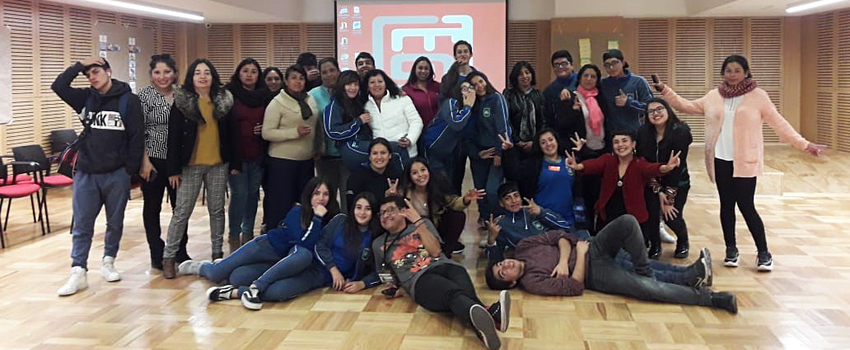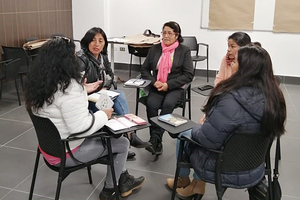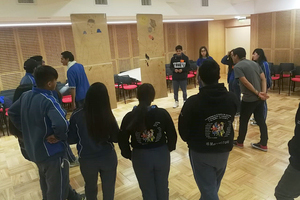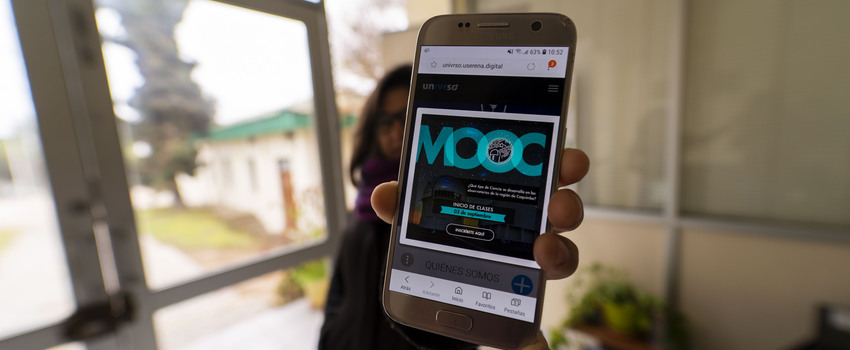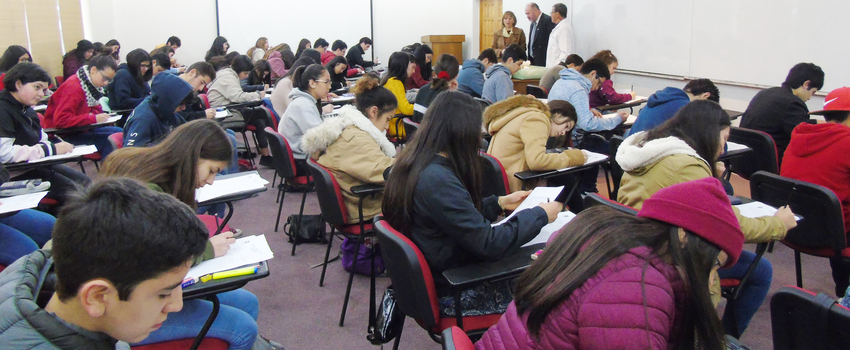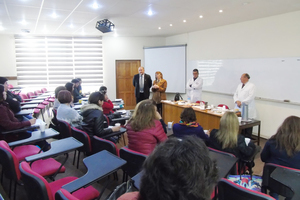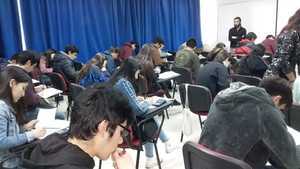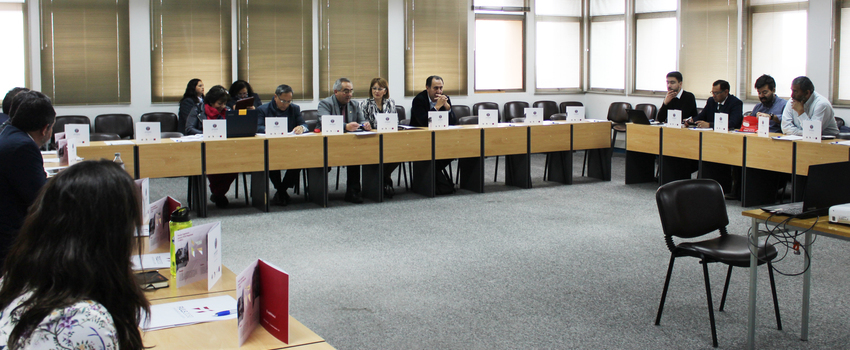
The conference addressed topics ranging from the requirements and needs of the Axis of Curricular Harmonization and Technological Postgraduate Studies to the feasibility of creating an R&D&i&e Center.
With the objective of addressing the transition, along with the acceptance and approval of the FIULS 2030 Project initiatives, the Change Management Senate conference was held. Authorities from the University of La Serena attended the activity to discuss the necessary transformation of engineering, according to the FIULS 2030 guidelines and the needs of the region and our country.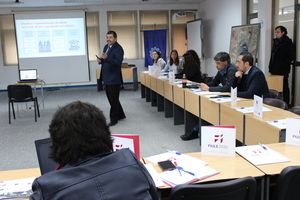
The Dean of the Faculty of Engineering and director of the FIULS 2030 Project, Dr. Ing. Mauricio Godoy Seura, pointed out that “this is a very important instance for our Faculty, as well as for the FIULS 2030 Project. We seek to open spaces for collaboration and this is why we will continue to carry out these instances of dialogue and participation. “We are very grateful for the presence of the University authorities.”
The Director of Media Liaison and Extension of the ULS, Mg. Carlos Varas, about the Change Management Faculty, stated that “we are working as a team and we are helping to link the different areas, such as academics, the Project Management Office, other careers, graduates and links with the environment. With these instances of dialogue it is possible to work on concrete and feasible topics.”
About the day, the director of the Human Capital and Change Management Axis of the FIULS 2030 Project, Mg. Denisse Duhalde indicated that “through these instances we can involve the institution with important issues that were addressed such as Requirements and Needs of the Axis of Curricular Harmonization and Technological Postgraduate Degrees, the new Regulations that consider R&D&i&e, the Regulation of Technological Transfers and the creation of an R&D&i&e Center”.
The initiative was also attended by the Academic Vice-Rector of the ULS, Dr. Alejandra Torrejón, the Director of Strategic Development and Quality, Dr. César Espíndola, among other authorities of the university.
Written by María José Barraza, FIULS 2030 Project

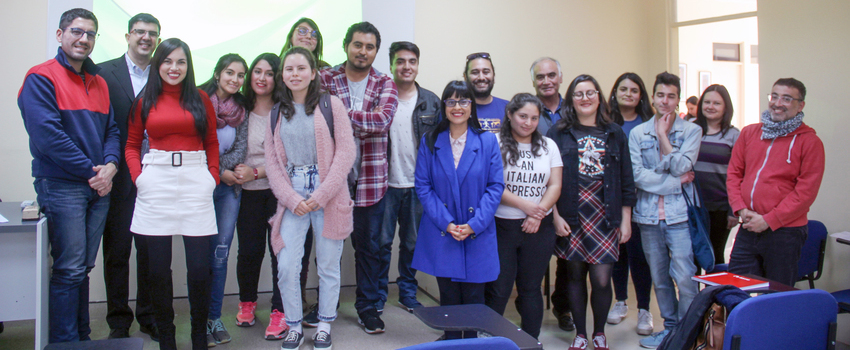
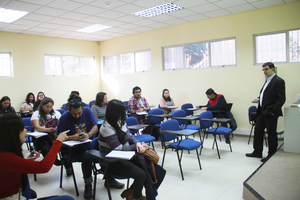
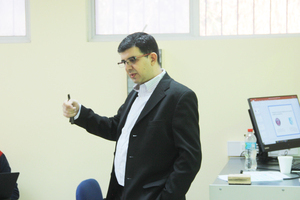
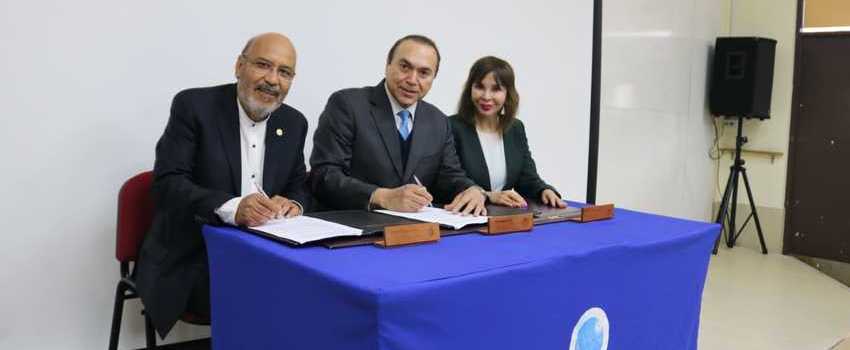
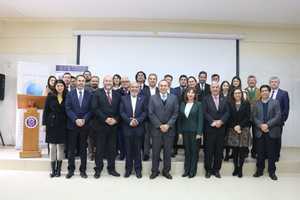 In an official ceremony, the Rector of the University of La Serena, Dr. Nibaldo Avilés Pizarro, the Dean of the Faculty of Social and Economic Sciences, Dr. Luperfina Rojas Escobar and the Dean of the Faculty of Social Sciences of the National University of San Juan, Mr. Raúl Sohar García, signed the document that confers greater academic linkage in favor of joint challenges and curricular enhancement.
In an official ceremony, the Rector of the University of La Serena, Dr. Nibaldo Avilés Pizarro, the Dean of the Faculty of Social and Economic Sciences, Dr. Luperfina Rojas Escobar and the Dean of the Faculty of Social Sciences of the National University of San Juan, Mr. Raúl Sohar García, signed the document that confers greater academic linkage in favor of joint challenges and curricular enhancement.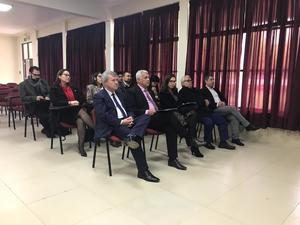 Likewise, the Dean of the Faculty of Social Sciences of the National University of San Juan, Mr. Raúl Sohar, highlighted the collaborative work. “Today it is a pleasure to be able to sign an instrument that will allow us to continue strengthening this relationship that has been going on for quite some time between both academic institutions. We have raised the brotherhood of peoples as our central objective. Furthermore, this act contemplates comprehensive work with the aim of growing together and developing as university institutions,” he declared.
Likewise, the Dean of the Faculty of Social Sciences of the National University of San Juan, Mr. Raúl Sohar, highlighted the collaborative work. “Today it is a pleasure to be able to sign an instrument that will allow us to continue strengthening this relationship that has been going on for quite some time between both academic institutions. We have raised the brotherhood of peoples as our central objective. Furthermore, this act contemplates comprehensive work with the aim of growing together and developing as university institutions,” he declared.